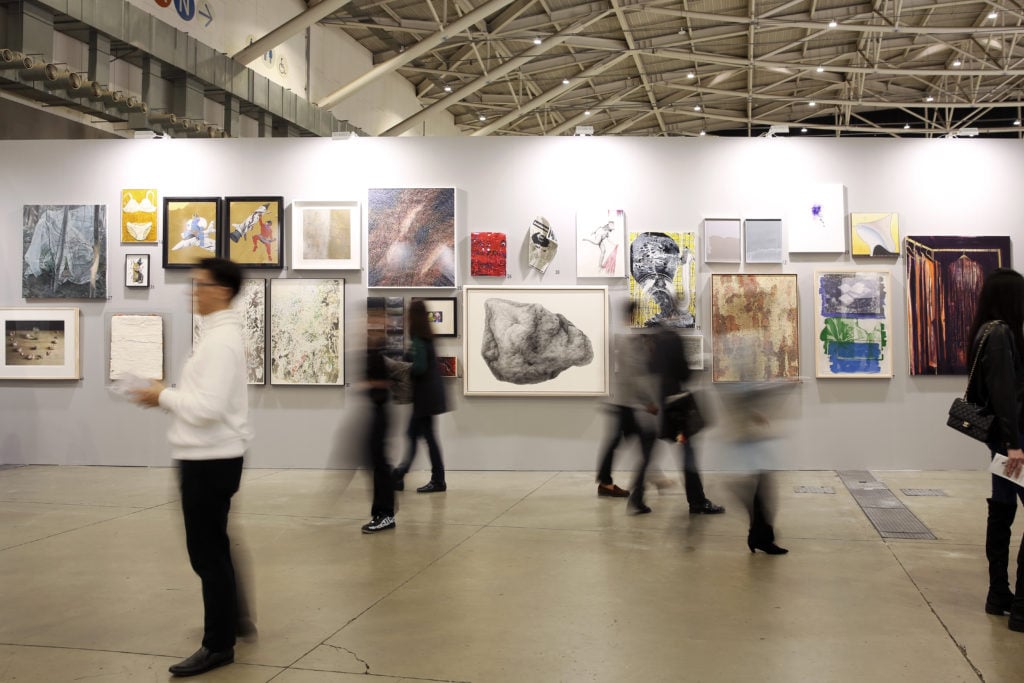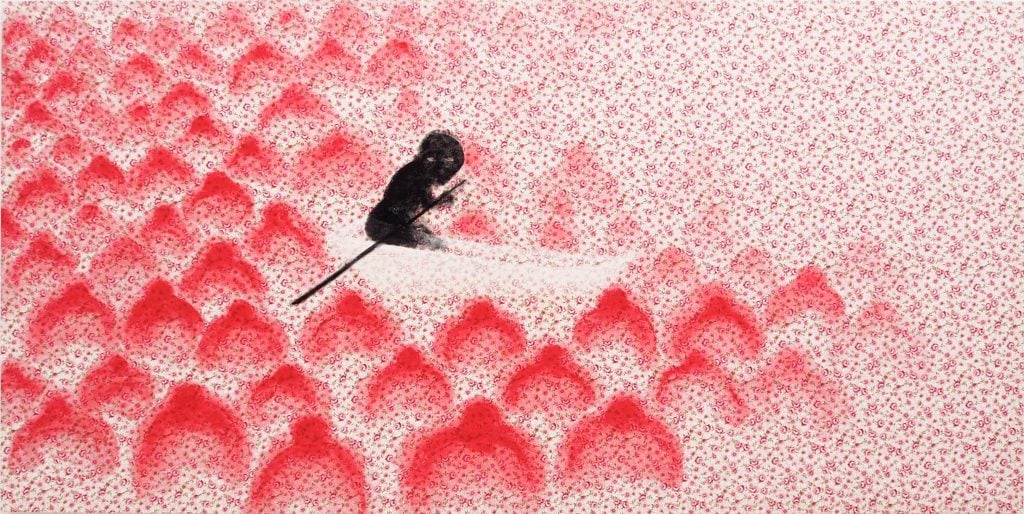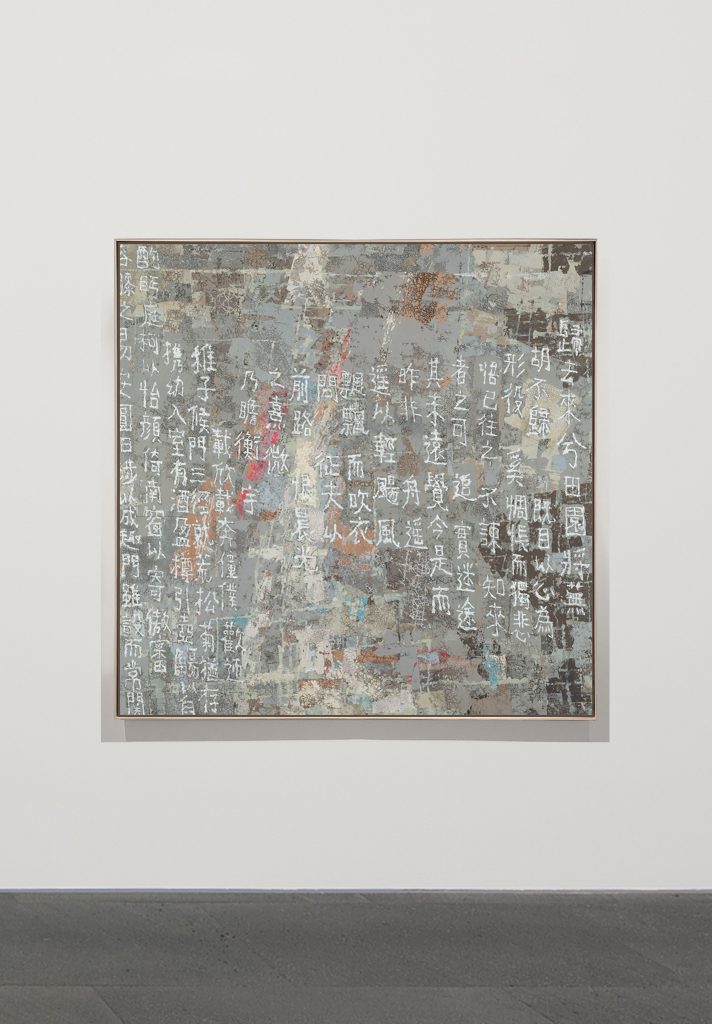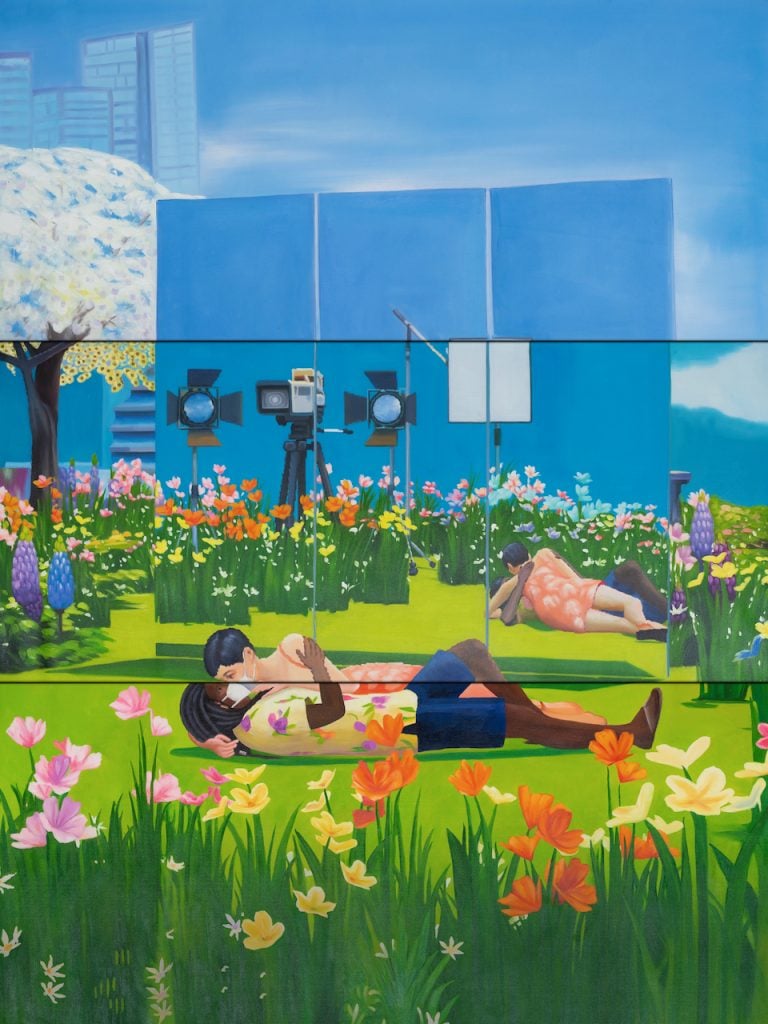Art Fairs
After Two Years on Hiatus, the Taipei Dangdai Fair Returns to Carve a Niche in an Increasingly Fragmented Asian Market
As uncertainty grows in Hong Kong, collectors are turning toward fairs in cities like Taipei and Seoul.

As uncertainty grows in Hong Kong, collectors are turning toward fairs in cities like Taipei and Seoul.

Vivienne Chow

It’s smaller and in a new location, but Taipei Dangdai is making comeback this week after nearly two years on hiatus (and a new wave of Covid infections sweeping the island). The return of the art fair isn’t just a sign of Taiwan’s policy switch from zero-Covid to living with the virus, it is also a test for the art market on the island, as well as in Asia more broadly, as the continent grows increasingly fragmented.
“We are still able to bring in galleries to Taiwan because there’s still considerable confidence in the Taiwanese market,” Robin Peckham, co-director of Taipei Dangdai, told Artnet News ahead of the fair’s VIP opening on May 19.
Taiwanese collectors have been playing an instrumental role in the Asian art scene for decades, but there have been notable shifts in recent years, Peckham noted. More recently, they have been participating in the high end of the auction markets in Hong Kong, New York, and London, at price points of $5 million or above, he said.
And, an incoming generation of young buyers, mostly coming from collector parents, are dabbling more in the primary market. They have more international tastes than their parents, and are venturing into emerging art at lower price points.
“Over the last two years we have seen very young collectors, some are in their 20s and do not come from collecting families, who had been collecting sneakers and sports cars but switching to art,” Peckham said.

Hou Chun Ming, Ferryman (2021). Courtesy of the artist and Each Modern.
The travel disruption brought by the pandemic has also caused a shift of the market dynamic in the region. With mainland China and Hong Kong remaining inaccessible under the zero-Covid policy while the rest of the world is gradually opening up, international art world players have been eager to explore other possibilities in East Asia. This may have opened up opportunities for other cities in the region, such as Seoul, Singapore, and Taipei.
“The Asian market has become more fragmented since 2020. It’s become so sophisticated and complex now that it is impossible to have one single hub,” Peckham said. Collectors and gallerists have to pick and choose when it comes to which fairs in Asia. Some might choose Taipei and Seoul, which have very different markets, instead of just going to Hong Kong and hoping to cover the entire region (which is becoming impossible).
This year’s Taipei Dangdai, which will take place at the downtown Taipei World Trade Center for the first time, features 62 galleries, down from the previous IRL edition’s 99. Exhibitors are divided into three sectors: One for established players; “Edge,” which features seven galleries that are less than a decade old; and the Solo sector, which highlights 16 one-person presentations of emerging and mid-career artists. Launch Stage, an online-only platform dedicated to digital art and NFTs, is making a debut as part of the fair. And artworks priced below $8,000 are presented in the Salon section.
Around one-third of the galleries are homegrown spaces from Taiwan, such as Taipei’s Ting Ting Art Space and Each Modern, which presents works by veteran Taiwanese avant-garde artist Hou Chun Ming, at prices ranging between $15,000 and $120,000.
The rest of the galleries come from outside of the island, including some notable names from around Asia, such as SCAI The Bathhouse and Kaikai Kiki Gallery from Tokyo, as well as Ink Studio from Beijing, which is joining for the first time. Blue-chip international players from the U.S., including LGDR and David Zwirner, are also taking part in the fair.

Fong Chung Ray, 2021-7-24 (2021). Courtesy the artist and Galerie du Monde.
Because of pandemic travel restrictions that are still in place, fair organizers have been playing it safe. Peckham and fair co-director Magnus Renfrew have met each other only once in person over the past weeks to minimize face-to-face contacts. The staff have also been divided into teams A, B, and C for the same reason.
About one third of the participating galleries have needed to hire help locally to man their booths. Staffing is thin due to the pandemic and to Art Basel Hong Kong, which opens to VIPs next week, on May 26. Fair organizers had helped galleries to find local talents such as independent curators, art consultants, and former gallerists to support on-the-ground operations.
Among them is Galerie du Monde from Hong Kong, which has been showing at the fair since its launch in 2019. It is bringing a stellar line-up of eight international artists, including Wu Chi-Tsung from Taiwan, Lam Tung Pang from Hong Kong, Michael Müller from Germany, and Adia Millett from the U.S.
“We believe that collectors in Taiwan and the audience there can bring us positive surprises,” managing director Kelvin Yang told Artnet News. “We deliberately opt for a wider price range to accommodate different clients”—a range between $8,000 and $100,000.

Mak Ying Tung 2, Home Sweet Home, Pandemic Love 5(2022). Courtesy the artist and de Sarthe.
Hong Kong’s de Sarthe gallery is teaming up with Gladys Lin Projects to present dual presentations of Lin Jing Jing from New York and Mak Ying Tung 2 (Mak2) from Hong Kong, with works priced between $18,000 and $30,000.
“There are more and more demands and eagerness to learn about international contemporary art. More from the younger generation are getting into art acquisition, which is beneficial to the market,” said Lin, who was previously the Asia director of Sean Kelly Gallery.
But as collectors are increasingly bombarded with information and PDFs across all digital channels, particularly amid the pandemic, art advisors and consultants are playing a much bigger role in acting as collectors’ filters, while educating collectors in Taiwan about art that reaches beyond the local market, she said.
Young collectors are also taking the opportunity to learn, particularly during the down time from the pandemic.
“I’ve been focusing my time on learning more in-depth about the artists whose works I have previously seen in person,” said collector Vicky Chen. She’s also been familiarizing herself with the local scene, and has started collecting works by Taiwanese artists, especially young and emerging ones.
But the return of Taipei Dangdai has undoubtedly brought excitement back to the city, and Chen’s art space Tao Art will present the Berlin-based Chinese artist He Xiangyu’s first solo show on the island. “Everyone is really excited,” Chen said.